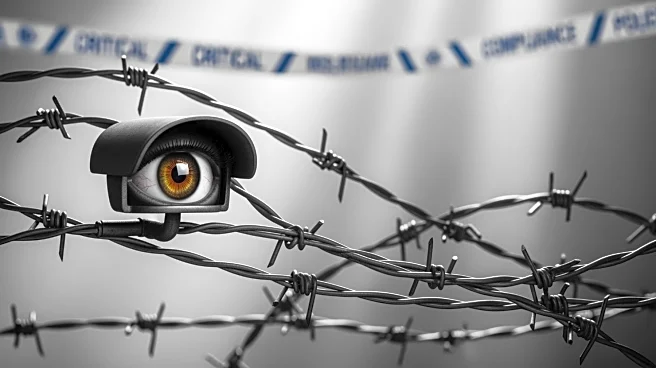What's Happening?
The Venezuelan government is encouraging its citizens to use a mobile application, VenApp, to report suspicious activities or individuals. This initiative comes amid rising tensions with the United States, as Venezuela faces the prospect of armed conflict.
VenApp, initially launched by President Nicolás Maduro in 2022, is being repurposed as a tool for citizens to inform the government of potentially seditious or disloyal behavior. The app's use reflects the government's strategy to maintain control and monitor internal dissent during a period of heightened geopolitical pressure.
Why It's Important?
The Venezuelan government's push for citizen surveillance through VenApp highlights the increasing authoritarian measures being employed in response to external threats. This development could exacerbate the already strained relations between Venezuela and the United States, potentially leading to further diplomatic and economic repercussions. For Venezuelan society, the encouragement of neighborly surveillance may foster an environment of mistrust and fear, impacting social cohesion and civil liberties. The use of technology for state surveillance raises ethical concerns and could set a precedent for other nations facing similar geopolitical challenges.
What's Next?
As tensions with the United States continue, Venezuela may further expand the use of VenApp or similar technologies to tighten control over its population. This could lead to increased international scrutiny and potential sanctions, affecting Venezuela's economy and diplomatic standing. The situation may also prompt responses from human rights organizations and civil society groups advocating for privacy and freedom of expression. The Venezuelan government's actions could influence other countries in the region facing political instability to adopt similar surveillance measures.
Beyond the Headlines
The use of VenApp for citizen surveillance in Venezuela underscores the broader trend of governments leveraging technology to monitor and control populations. This raises significant ethical and legal questions about privacy rights and the balance between national security and individual freedoms. The situation in Venezuela may contribute to a global discourse on the role of technology in governance and the potential for abuse in authoritarian regimes.














